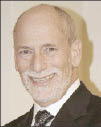Nonprofits
Last year around this time, two drug abuse prevention groups were heralding their looming merger as a perfect union. The National Center on Addiction and Substance Abuse (CASA), housed at Columbia University, is one of the most recognizable names in the drug use research field, and Join Together (of the Boston University School of Public Health) is well-known for dissemination of news and resources on the subject.
Join Together would move to New York and become part of CASA; Join’s founder, David Rosenbloom would become CEO of the new organization; and CASA founder Joe Califano would become a very active member of the board of directors.
“Clearly, this makes CASA the powerhouse in the substance abuse field,” Califano told Youth Today at the time of the merger. In a statement issued the same week, he said that “David Rosenbloom is the individual best suited to move CASA forward and increase its influence and activities.”
What could possibly go wrong … right?
Something did go wrong. CASA announced in late January that Bill Foster would be its new CEO. Which is funny, because it never announced that Rosenbloom had left the organization he took over in May 2009. And, more importantly, that he had taken Join Together with him back to Boston.
Neither Rosenbloom nor Califano was available to discuss the matter, according to their respective staffs.
“It didn’t work out,” said CASA spokeswoman Lauren Duran. Asked why it didn’t work out, she said, “That’s our only statement.”
Rosenbloom foisted the same vagaries on Join Together members in an e-mail issued Feb. 17:
“The merger of Join Together and CASA, which took effect last May, did not work out as we had hoped. … Join Together returned to the Boston University School of Public Health, and I completed my service at CASA.”
A senior staffer at Join Together, who asked not to be named, went only a bit further.
“There was a poor match of organizational cultures,” the staffer said.
The staffer would not say whether Join Together walked away from CASA, or vice versa. Either way, some funding for both organizations was presumably merged in May. And now, according to Rosenbloom, the organization is fighting for survival.
“The short term outlook is bleak,” Rosenbloom told members in his letter. “Join Together will cease to exist by the fall of 2010 unless we raise the money needed to fund our programs through 2011.”
At least one of Join Together’s funders – the Princeton, N.J.-based Robert Wood Johnson Foundation – is transferring the remainder of its grant back to Boston University, where Rosenbloom returned. That was a $2.5 million grant to expand the organization’s reach and offerings, and it is up this year.
At CASA, the new face of the organization is a familiar one. Foster spent the last four years as dean of the University of Southern Maine’s Edmund Muskie School of Public Service, but before that he was CASA’s senior vice president and chief operating officer for 10 years. His resume also includes time as the Congressional Commission on Social Security’s executive director, the New Jersey Department of Labor’s chief of staff and deputy commissioner and former Sen. Bill Bradley’s (D-N.J.) policy adviser. Contact: CASA (212) 841-5200, http://www.casacolumbia.org; Join Together (617) 437-1500, http://www.jointogether.org.
 |
|
Marie Wheatley |
Marie Wheatley resigned as president and CEO of the American Humane Association in January, ending her six-year stint atop the Denver-based network of child and animal protection agencies. American Humane named a former board member, management consultant George Casey, as Wheatley’s interim replacement.
Casey, who served on American Humane’s board from 2001 and 2008 and is a certified public accountant, will assist the board in its national search for a permanent replacement. Contact: (800) 227-4645, http://www.americanhumane.org.
One New York City child and family services provider – Community Service Society, headed by David Jones – made a bold move last month. It acquired City Limits, a well-known progressive policy magazine on the brink of financial extinction, from another nonprofit called City Futures.
Any fears that the magazine would be soft on peers in the provider world were likely assuaged when the first CSS-managed edition took on Harlem Children’s Zone, asking on the cover whether there was “Hope or Hype in Harlem?” Like Youth Today’s November 2009 feature, “Obama’s Zone Offense,” the piece assesses the extent to which HCZ, the approach developed by Geoffrey Canada and set to be replicated nationwide using federal money, has succeeded.
“As we see the disappearance of local reporting on critical issues facing low- and moderate-income New Yorkers, City Limits will continue to play a valuable role in shaping the public debate,” Jones said in a statement about the purchase.
The content of the magazine, which is a free-standing nonprofit under CSS, will be managed by its own staff without input from CSS leadership. But the organization did put its immediate stamp of influence on the periodical by hiring a publisher for it from the CSS ranks. Tasked to lead the relocated City Limits was Walter Fields, who previously served as CSS’ vice president of government relations and public affairs.
City Futures was paid $250,000 in the acquisition, and the City Limits staff of four was carried over with the magazine. Jones said CSS plans to spend $1 million on developing the magazine over the next three years, with a goal of increasing its subscriber base from 1,500 to 25,000. Contact: (212) 254-8900, http://www.cssny.org.
Correction: In the February issue of Youth Today, Newsmakers reported that, after co-director Andrew Muñoz left in January to become a professor at the University of Pittsburgh, Bonnie Politz would again be sole director of the Center for Youth Development and Policy Research at the Academy for Educational Development.
In fact, Politz changed positions within AED. She is now vice president and senior technical expert for AED, and will work on domestic and international youth initiatives.
Meanwhile, AED changed the name of the center to the Center for Youth Development and Engagement. Nelda Brown will serve as director of the newly named center. Brown was executive director of AED’s National Service-Learning Partnership, and the partnership now joins community mapping and youth development projects as the focal points of the newly named center. Contact: (202) 884-8000, http://cydpr.aed.org.
Foundations
Patrick McCarthy will succeed the retiring Douglas Nelson as president and CEO of the Baltimore-based Annie E. Casey Foundation (assets, $2.5 billion).
 |
|
Patrick McCarthy |
McCarthy, who takes over a staff of 500 on April 4, joined Casey in 1994 and is now senior vice president. Before joining the foundation, which gave out $190 million in 2008, he was director of the Division of Youth Rehabilitative Services for Delaware.
McCarthy was also a senior program officer at the Center for Assessment and Policy Development in Bala Cynwyd, Pa., and a psychiatric social worker in the Camden County (N.J.) Mental Health Center.
Casey was founded in 1948 in Seattle by UPS co-founder Jim Casey and his siblings, in honor of their mother. Its major initiatives include the Juvenile Detention Alternatives Initiative, which helps communities to make informed decisions about the use of secure detention facilities; and Family to Family, which has helped state and county child welfare systems increase investment on foster homes and family preservation while minimizing the number of placements in institutional care.
Nelson has been with the foundation for 20 years. He will split his time between Baltimore and Wisconsin, where he was once a history professor and before that served as assistant secretary of the Wisconsin Department of Health and Social Services. He intends to remain involved with Casey projects on a volunteer basis, particularly the foundation’s East Baltimore Development Initiative, which includes efforts to keep together foster children and their children. Contact: (410) 547-6600, http://www.aecf.org.
D.C.-based Public Welfare Foundation has a new program officer for juvenile justice: Katayoon Majd, formerly the senior staff attorney for the D.C.-based National Juvenile Defender Center headed by Patty Puritz. Majd joins the foundation’s current justice program officer, Seema Gajwani, who joined the foundation in 2007. Contact: (202) 965-1800, http://www.publicwelfare.org.
 |
|
Katayoon Majd |
Government
The Senate recently confirmed more than two dozen nominees of President Barack Obama, including three leaders of family and child-serving agencies.
Patrick Corvington was confirmed to be chief executive officer of the Corporation for National and Community Service. Corvington, who was previously senior associate in the Leadership Development Unit at the Annie E. Casey Foundation in Baltimore, was nominated in October.
Obama originally selected Nike Vice President Maria Eitel to head the agency, which operates AmeriCorps and other service-learning programs, but Eitel abruptly withdrew from consideration – before her name was sent to the Senate – citing health reasons.
Corvington will be the first confirmed CEO at the corporation since David Eisner resigned in October 2008. Nicola Goren, Eisner’s chief of staff, has been interim CEO and is staying on as an adviser to Corvington.
Bryan Samuels was confirmed to serve as commissioner of the Administration on Children, Youth and Families, part of the Administration on Children and Families (ACF) at the Department of Health and Human Services.
Samuels was director of the Illinois Department of Children and Family Services and a top aide to U.S. Education Secretary Arne Duncan when Duncan led Chicago Public Schools.
Samuels answers to the assistant secretary at ACF, Carmen Nazario. Samuels’ division of ACF oversees two major youth services funders: the Family and Youth Services Bureau (FYSB) and the Children’s Bureau.
Susan Carbon was confirmed as director of the Office on Violence Against Women, a division of the Justice Department’s Office of Justice Programs. Carbon, a former New Hampshire family division judge, was president of the National Council of Juvenile and Family Court Judges from 2007 to 2008.
Carbon’s office oversees programs that confront domestic and dating violence and funds services for children exposed to violence.
The confirmations eased some of the tension between the administration and Senate Republicans caused by the blanket hold that had been placed by Sen. Richard Shelby (R-Ala.), preventing confirmation votes for 70 nominees. Shelby placed the hold to protest the lack of funding for two projects in his state. He removed most of the holds, but kept them on nominees related to the two projects.































